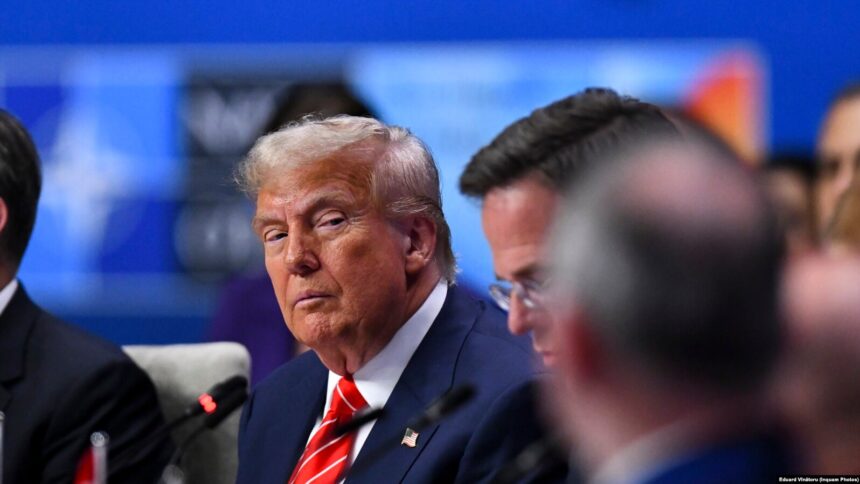U.S. President Donald Trump on Wednesday once again questioned his country’s commitment to defending its NATO allies if they are attacked. Trump is currently attending a NATO summit in the Netherlands.
Echoing sentiments from his first term, Trump implied that his support would depend on whether U.S. allies spend “enough” on defense. He reiterated his demand for European allies and Canada to spend 5 percent of their gross domestic product on defense.
Defining Article 5
Ahead of the Hague meeting, Trump told reporters aboard Air Force One that his commitment to Article 5 of NATO’s founding treaty—the organization’s collective security guarantee—”depends on your definition.”
“There are many definitions of Article 5. You know that, right?” Trump said. “But I am committed to being their friend.” He stated he would provide a more precise definition of what Article 5 means to him once at the summit. As a candidate in 2016, Trump had suggested that as president, he might not automatically uphold the alliance’s mutual defense guarantee. In March of this year, he expressed uncertainty about whether NATO would defend the United States if needed.
What Article 5 Means
Article 5 is the cornerstone upon which the 32-member North Atlantic Treaty Organization is built. It stipulates that an armed attack against one or more members shall be considered an attack against all members. It also states that, in the event of such an attack, each member will take, individually and in cooperation with others, “such action as it deems necessary, including the use of armed force, to restore and maintain the security of the North Atlantic area.”
This security guarantee is why Finland and Sweden, previously neutral countries, sought to join NATO after Russia’s full-scale invasion of Ukraine in 2022—and also why Ukraine and other European nations are seeking membership.
Past Activation and Deterrence
Article 5 has been activated only once: after the September 11, 2001, terrorist attacks on the United States, paving the way for NATO’s largest-ever operation in Afghanistan. NATO allies have also undertaken collective defense measures, including joining the U.S. to fight the Islamic State (IS) group in Syria, Iraq, and Afghanistan, and helping maintain peace in the Balkans.
The “Three Musketeers” pledge—all for one, one for all—is central to NATO’s deterrent effect. Questioning this guarantee could encourage an adversary to test it. European officials have stated that Russia is planning precisely such a test.







